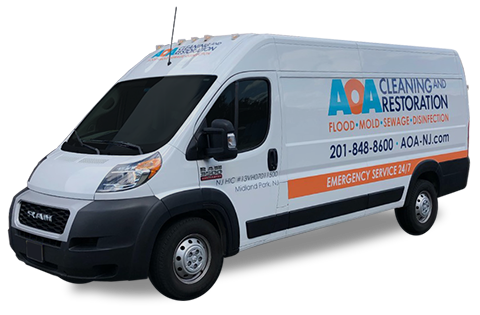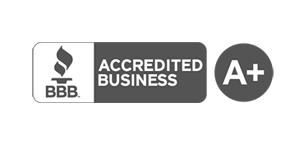Recently, Bergen County’s water quality has raised many concerns. This is due to “boil water” advisories that were not well shared with the public. A drop in water pressure in Midland Park, caused by too much lawn watering, affected parts of Ridgewood and Wyckoff. This highlighted big problems with how emergencies are communicated.
The boil water advisory was lifted after tests showed no bacteria. But, people were upset because they didn’t get clear or quick updates. The town manager in Ridgewood said people can get alerts through a reverse 911 system. Yet, Wyckoff’s committee says they need a better way to send out important messages, like boil water advisories.
Key Takeaways
- Bergen County water quality has been a concern due to recent “boil water” advisories.
- A significant drop in water pressure from excessive lawn watering triggered the advisory in Midland Park, impacting Ridgewood and Wyckoff.
- Residents were critical of the delayed and inadequate communication regarding the advisory.
- Ridgewood residents can sign up for a reverse 911 system for emergency notifications.
- Wyckoff’s township committee is advocating for a more robust mass notification system.
- The advisory was lifted after negative bacteria results, yet concerns about water quality persist.
Recent Boil Water Advisories in Bergen County
In July 2022, Bergen County faced a major water crisis. E. coli was found in the water supply of several towns. These towns included Fairview, Cliffside Park, and Ridgefield, among others.
A sample on July 19, 2022, confirmed the presence of E. coli. More samples on July 20, 2022, also showed the bacteria.
Communication Breakdowns
Many residents didn’t get timely alerts about the boil water advisories. In Wyckoff, officials said they needed a better way to notify everyone. The current system failed to reach all users.
This showed big gaps in how Bergen County manages water.
Resident Reactions
People were very upset. Many didn’t know about the water problem. This put vulnerable groups, like the elderly, at risk.
It showed the bigger problem of water issues in Bergen County. People wanted better information during emergencies.
Official Responses and Solutions
Officials promised to improve emergency alerts. They said they would make sure everyone is safe. The Michigan Department of Environmental Quality later lifted the advisory.
But, people were still unhappy about how they were told. Veolia worked hard to fix the problem. They said they would solve it quickly.
They also gave a contact number for questions. And they put up notices in different languages to reach more people.
Water Contamination Incidents and Legal Actions
Water contamination in Bergen County has led to legal actions. Garfield’s lawsuit against Dow Chemical is one example. It shows how industrial pollution affects local communities.
Garfield’s Lawsuit Against Dow Chemical
Garfield has sued Dow Chemical Company. They claim the company polluted their drinking water with 1,4-dioxane. This chemical is found in paints and inks and might cause cancer.
The city says the water is “unusable and unsafe.” This poses a big risk to public health. The lawsuit is in the Superior Court of Bergen County.
Health Risks and Public Safety Concerns
The contamination in Bergen County has raised health concerns. Substances like 1,4-dioxane and PFAS chemicals have been found. Ridgewood Water aims to remove PFAS by 2026.
Research links chemical exposure to health problems. People near contaminated water face cancer and illness risks. This shows the need for strong regulations.
The New Jersey Attorney General’s office has filed 16 lawsuits since 2018. They seek accountability and compensation for cleanup. Cleanup efforts might last until 2041.
This fight against water contamination in Bergen County is urgent. It shows the need for better environmental protection and stricter rules on industrial pollutants.
Long-term Pollution in Bergen County Water Supply
The water supply in Bergen County has faced pollution for a long time. This problem started with the industrial activities along the Hackensack River and its tributaries. Local authorities have been working hard to fix these water quality issues.
Hackensack River Pollution History
The Hackensack River has been polluted since the early 1900s. This pollution grew worse during the county’s industrial boom. Chemical plants and other facilities dumped pollutants into the river, harming its ecosystem.
Role of Bergen County Utilities Authority
The Bergen County Utilities Authority (BCUA) has been key in fighting pollution. It was set up in 1951 to handle sewage for twelve towns. The BCUA has grown to manage more waste, serving a larger population.
- The BCUA system spans about 108 miles of sewer lines and pumping stations.
- It has nine pumping stations, with five near the Oradell Reservoir.
- The Overpeck Trunk Sewer was the first major sewer trunk, followed by the Hackensack Valley Trunk Sewer in 1964 and the Southwest Trunk Sewer in 1972.
Efforts in Pollution Control and Treatment Plant Expansions
The BCUA has worked hard to improve water treatment. It has expanded its plants several times, with the latest in 1992. Now, the plant can handle 109 million gallons of water daily, serving 536,000 people in 46 towns.
- Metering data from 166 chambers is sent automatically to the BCUA’s User Charge Department.
- These expansions help manage the county’s wastewater and reduce pollution.
The New Jersey Attorney General’s office has also taken legal action. They filed a civil suit to clean up groundwater in Lodi. This cleanup is expected to last until 2041.
Experts like Professor Helen Kang and sociologist Scott Frickel say we need better solutions. They suggest fixing the whole watershed, not just industrial sites. This approach is key to keeping Bergen County’s environment healthy.
Conclusion
Bergen County faces many water management challenges. These include both short-term and long-term problems. The recent boil water advisories show how important it is to communicate well during emergencies.
People’s reactions to these advisories highlight the need for early warnings and regular updates. Lawsuits, like Garfield’s against Dow Chemical, also point to ongoing health risks and safety concerns. These issues are linked to water quality.
The Hackensack River’s pollution and a lot of impervious cover (70.8% of Hackensack’s land) make improving water quality hard. Impervious cover affects the quality of water sources. Even a small amount of impervious cover can harm streams.
The Bergen County Utilities Authority and others are working on projects to improve pollution control and expand treatment facilities. This is to meet future demands.
There are also plans to update infrastructure, like expanding treatment plants and using green projects to manage stormwater. Despite these efforts, NJ properties face growing flood-related financial risks. The average loss per property is expected to increase from $4,412 in 2021 to $6,755 by 2051.
Lead contamination in water is another big concern, especially in schools and urban areas. This shows how crucial it is to ensure safe drinking water for everyone.
In summary, Bergen County’s experience shows the need for strong, multi-layered water management strategies. Both short-term and long-term solutions are essential to tackle contamination, improve infrastructure, and ensure reliable communication during emergencies. As Bergen County tackles these challenges, the lessons learned here can help other communities facing similar issues.
Lastly if you ever need water extracted or water damage restoration in Bergen County area contact our experts at AOA Cleaning and Restoration for help!




















